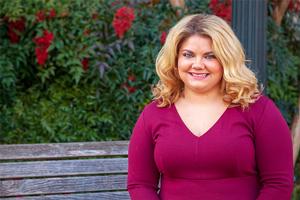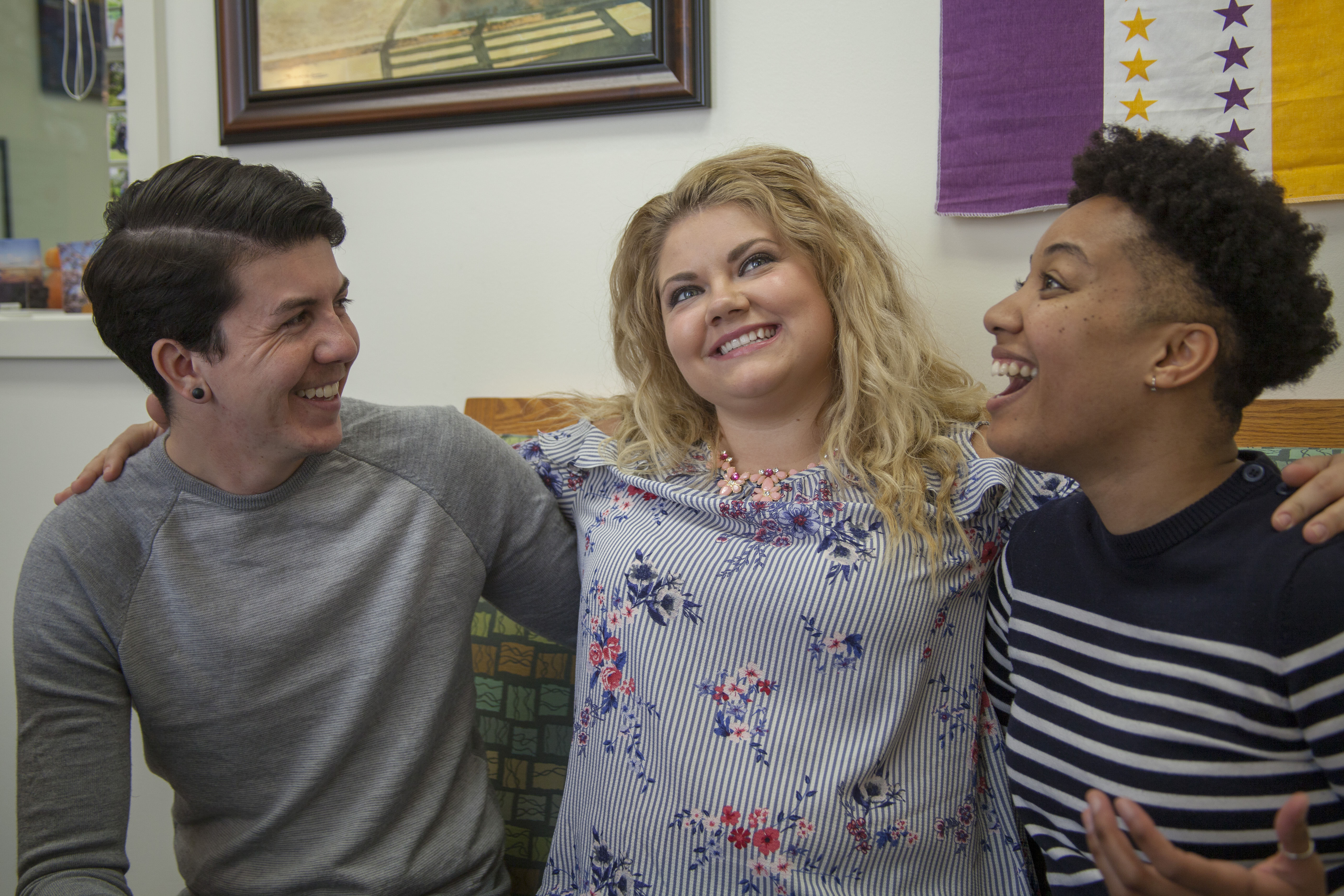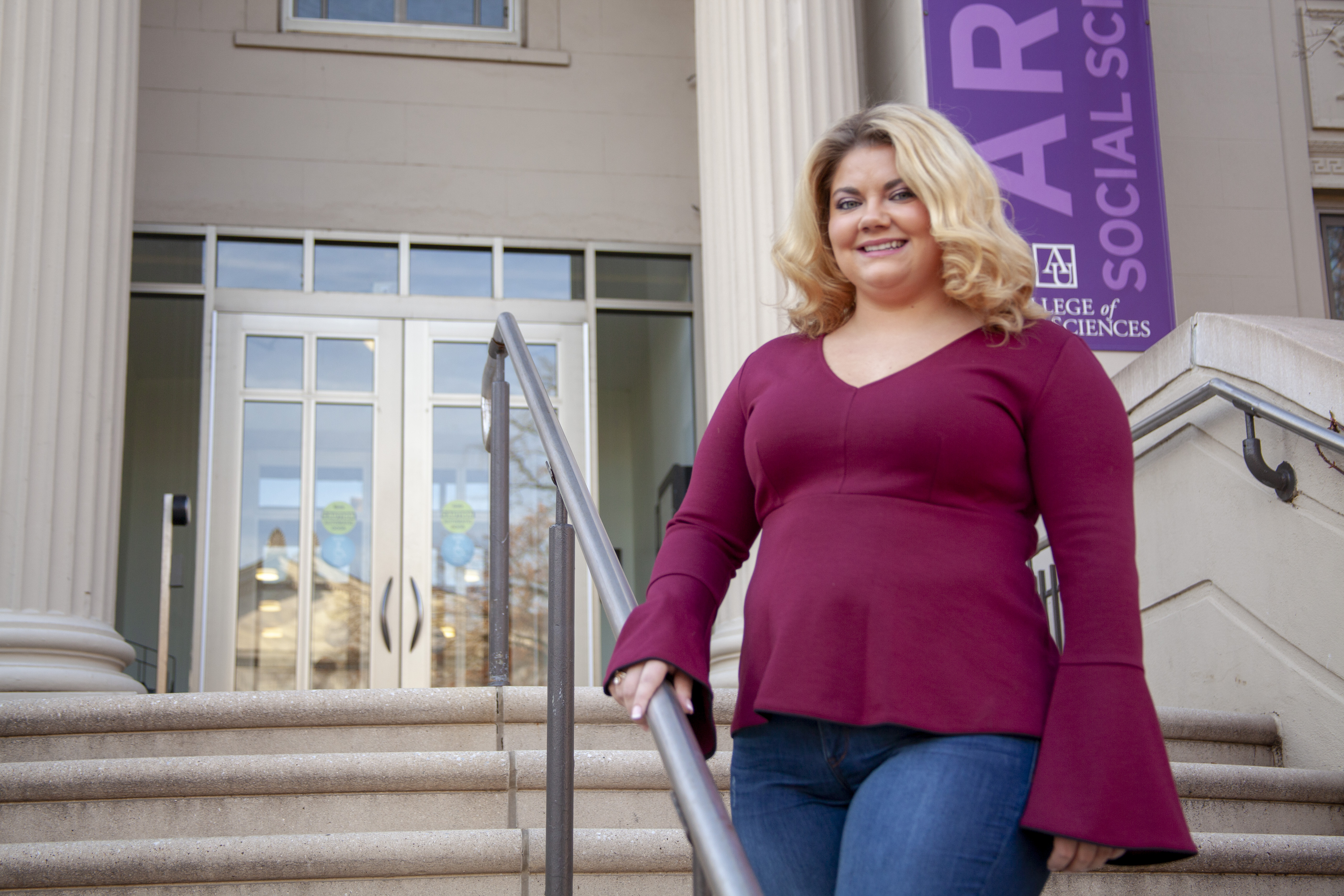Student Life
Heaven's Story Commencement Speaker Heaven Sensky Shares What It’s Like to be a First-Generation Student

Heaven Sensky, SPA ’18, already has a job lined up at a Washington non-profit — but not in Washington, D.C. Her job will be in Washington, Pennsylvania, or “Little Washington” as it is known locally, in the old Appalachian coalfields of southwest Pennsylvania. That’s the town where Sensky grew up, and how she navigated both Washingtons will be a major part of her speech as the undergraduate speaker during the 2018 Fall Commencement on Sunday, Dec. 16.
Her speech will lay out the journey of how a low-income student from rural “Little Washington” was able to graduate in three-and-a-half years in Big Washington while interning for a US Senator and the Obamas, and why she now feels the urge to go back home as a community organizer.
Sensky has been helping others from an early age — by necessity. She was only three when an accident left her father a quadriplegic at age 25. Her mother became the breadwinner, working at night, and Heaven was soon stepping up to help her father.
“As a child, I’d listen for my father at night to make sure he was okay,” Sensky recalls. “I realized I’m a light sleeper because of that.”
When she was old enough, she also worked to help support the family. Despite the challenges, Sensky was a high-achiever in high school and started to think about college but wasn’t sure how to navigate the process.
Less than 19% of the people in her hometown have a bachelor’s degree, according to the U.S. Census Bureau. Heaven’s father had taken a few college classes, but he couldn’t offer her much guidance. Fortunately, a mentor helped her navigate the financial aid process, which gave Sensky the confidence to apply to AU.
“I never thought I’d get in,” she says, “but I felt I had to.” AU, she could see, was a place full of people who were politically active and cared about public service. “I thought AU would be the place where I could finally belong,” she says.
A Difficult Realization
It didn’t turn out to be that easy. She got in to her dream school but was soon startled by how different the backgrounds of other students seemed to be from hers. Her floormates had traveled the world and were soon exploring D.C. comfortably. Heaven, meanwhile, had never seen a Smart Trip Card and wasn’t familiar with either the technology or the academic language that her private school-educated classmates took for granted. Not only was she from a small town where college education wasn’t the norm; her own family could offer little advice. College simply wasn’t part of the experience of most people she knew.
However, she’d soon discover, she wasn’t alone. Nearly 10 percent of AU students, around 900 people, are First Generation — with neither parent having attended college — and many others had parents who may have taken a few classes or attended a vocational school but didn’t graduate from a four-year college. Yet they’re an invisible minority at AU, which has far fewer First Generation students than the national average. According to the Chronicle of Higher Education, one in three college students are First Generation.

She felt welcomed at CDI, where diversity is understood to include diversity of socioeconomics and life experiences, such as those faced by First Generation (or “First Gen”) students at AU, and was soon working at CDI as a Federal Work Study employee, surrounded by people who understood. “They taught me the language I needed to tell my story,” Sensky says.
She realized, too, that her initial feelings that she was struggling and had “poor grades” reflected her feeling of being an imposter, a common feeling among First Gen college students. (Her grades weren’t poor at all; she had a 3.6 GPA as a First-Year student.)
Understanding and telling her own story also helped her facilitate CDI workshops on race and privilege to fellow white students – which was a challenge at first, because as she says, “I had to engage in difficult conversations in front of 100 people.”
She ended up being instrumental in rolling out CDI’s Peer Education program, trained many future peer educators, and engaged in difficult conversations about race, class, privilege, and poverty. Meanwhile she was learning how to get work done in the halls of power.
 Going Home
Going Home
Sensky interned on Capitol Hill for Sen. Bob Casey, and then had an experience that made a powerful impact: She was one of six applicants, out of several thousand, to win an internship with the Personal Office of Barack and Michelle Obama – including a chance for conversation with the Obamas. “The opportunity to talk with the Obamas helped me rethink who I am and why I pursued public service to begin with,” she says.
She decided that the path that reflected her own sense of self and her own hopes and dreams for her community was the path that took her home, to make a difference in her own community. After graduation, she’ll be back home in “Little Washington,” working as a community organizer for the Center for Coalfield Justice, which addresses the impact of mining, fracking, and other fossil fuel extraction projects on residents of southwestern Pennsylvania.
“A lot of people think I am giving up by going back home, but it’s the opposite,” she says. “This is why I’m here and why I did this – to help people in my community.”
Related Links:
Five Questions on First Generation Students: Interview with Celine-Marie Pascale
